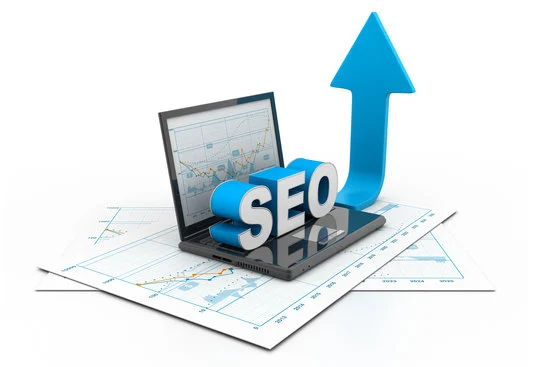When clients first speak with us about SEO strategies, their general thought is that SEO will improve their visibility in the engines and thus increase their website traffic.
While true, of course, many business owners don’t realize that SEO is also important to a website’s conversion rate optimization strategies.
In this post, we’ll look at the many different ways good SEO can improve your website conversions, turning that newly-minted traffic into customers.
So, let’s look at the following ideas:
- SEO helps you rank higher in the search results
- Importance of relevant website content
- SEO helps you build trust and credibility
- SEO provides valuable insights into customer behavior
- Make content specific to keywords – not just a list of benefits
- How Best to Optimize for Quality SEO
What Is Conversion Rate Optimization?
Simply put, what we call CRO is the process of optimizing your website to increase the percentage of visitors who take a desired action, such as making a purchase or signing up for a newsletter.
And since SEO is all about getting more visitors to your site, it follows that it can have a big impact on your conversion rate.
There are a number of ways that SEO can affect conversion rate.
For one, it can help you get more targeted traffic to your site. This is because when you optimize your site for the right keywords, you’re more likely to attract visitors who are actually interested in what you have to offer.
Additionally, SEO can improve your website’s usability, making it easier for visitors to find what they’re looking for and navigate your site. This is important because if visitors can’t easily find what they need on your site, they’re less likely to stick around and are more likely to bounce.
Finally, SEO can also indirectly affect conversion rate by building trust and credibility with your audience.
When your site appears at the top of the search results, it sends a signal that you’re a credible source of information. This can encourage visitors to stay on your site longer and ultimately be more likely to convert.
As you can see, SEO can play a vital role in conversion rate optimization. So if you’re not already focusing on SEO, now is the time to start. Whether you DIY your SEO strategies or hire conversion rate optimization experts, the time to start exploring good SEO practices is now…or yesterday!
By doing so, you can improve your website’s traffic, usability, and trustworthiness – all of which can lead to more conversions.
SEO helps you rank higher in the search results
One of the main purposes of SEO is to help your website rank higher in the search results. The higher you rank, the more visible your website will be to potential customers. And the more visible your website is, the more likely people are to click through to it.
Studies have shown that the top result in the search results gets about 32% of the clicks, while the second result gets about 18%. That means that if you’re not ranking in the top two results, you’re missing out on a lot of potential traffic.
And when you do get traffic from the search engines, it’s generally high-quality traffic. That’s because people who are searching for something are typically further along in the buying process than those who stumble across your website through other channels. They know what they want and they’re looking for a specific solution.
That means they’re more likely to convert into a lead or customer than someone who isn’t specifically looking for your product or service.
It should also be important to understand the difference between a marketing funnel vs customer journey before you plan your SEO strategy.
Importance of relevant website content
When it comes to relevant website content, there is no denying that SEO plays a vital role. After all, Search Engine Optimization is all about optimizing your website for the search engines so that you can get higher rankings in the SERPs (search engine results pages).
And when you have higher rankings, you will naturally get more traffic to your website. But what does this traffic actually mean for your website? In other words, how does SEO affect conversion rate?
To put it simply, conversion rate is the percentage of visitors who take a desired action on your website. This desired action could be anything from subscribing to your newsletter to making a purchase on your online store. And since SEO helps you get more visitors to your website, it therefore also has a direct impact on your conversion rate.
There are a number of factors that affect conversion rates, and SEO is just one of them. However, it is an important factor nonetheless. After all, if you are not getting any traffic to your website, then there is no way that you will be able to convert any of those visitors into customers or subscribers.
On the other hand, if you are getting a lot of traffic but your website is not optimized for conversion, then you will also have a low conversion rate.
In order to optimize your website for conversion, you need to make sure that all aspects of your website – from the design to the content – are geared towards converting visitors into customers or subscribers.
And this is where SEO comes in.
By optimizing your website for the search engines, you will also be making it more user-friendly and relevant to your target audience. As a result, you will see an increase in your conversion rate.
We talk about even more detailed SEO tricks to improve conversion rate in this article.
So, if you are looking to improve your conversion rate, then make sure that you focus on SEO as well. It is an important part of any effective conversion rate optimization strategy.
SEO helps you build trust and credibility
Another way that SEO can help improve your conversion rate is by building trust and credibility with potential customers. When people see your website at the top of the search results, they automatically assume that you’re an authority in your industry.
After all, if you weren’t good at what you do, Google wouldn’t be featuring you so prominently in their results. This trust and credibility can go a long way towards convincing someone to do business with you.
Additionally, your website’s position in the search results can also be a factor in how much trust people have in your brand. A recent study found that people are more likely to trust a brand if it appears in the top result for their search query.
In fact, 61% of people said they were more likely to contact a business that appeared in the top result. On the other hand, only 9% said they were likely to contact a business that appeared in the fourth or fifth position.
SEO provides valuable insights into customer behavior
Finally, SEO can also provide valuable insights into customer behavior that can help you improve your conversion rate. When you track your website’s SEO performance, you can see which keywords people are using to find your website and what type of content they’re looking for.
This information can help you tweak your website and marketing strategies to better target potential customers. As a result, you’ll be able to generate more leads and sales from your website.
Make content specific to keywords – not just a list of benefits
Good SEO can help to increase traffic to your website and improve your visibility in search engine results pages (SERPs), which can in turn lead to higher conversion rates. There are a number of factors that contribute to good SEO, including title tags, meta descriptions, keywords, backlinks and more.
SEO should be a key part of your conversion rate optimization strategy, as it can help to increase traffic and improve your visibility in search results. If you are not sure where to start with SEO, then we recommend talking to a professional search engine optimization company that can help you to get started.
How Best to Optimize for Quality SEO
It’s no trade secret that optimizing for SEO can be a challenge.
The Google algorithm for SEO is constantly changing, and it can be difficult to keep up with the latest trends. Fortunately, there are a few basic principles that you can follow to ensure that your website is optimized for search engine traffic.
1. Use keyword-rich titles and descriptions
The title and description of your website are important elements of SEO. Make sure to include relevant keywords in these areas so that your site comes up in search results for those terms.
2. Use keyword-rich anchor text
Anchor text is the text that appears on a webpage that links to another page. When creating links, use keywords in the anchor text so that search engines will associate those keywords with your site.
3. Use keyword-rich alt text
Alt text is the text that appears in place of an image on a webpage. When adding images to your site, include keywords in the alt text so that search engines can index the image and improve your site’s ranking.
4. Use keyword-rich meta tags
Meta tags are HTML tags that provide information about a webpage. Including keywords in meta tags such as the title tag, description tag, and keyword tag can help improve your site’s ranking for those terms.
5. Use keyword-rich URLs
The URL of a webpage is another important element of SEO. Make sure to include relevant keywords in the URL so that search engines can easily index your site.
By following these basic principles, you can ensure that your website is optimized for search engine traffic and improve your chances of conversion rate optimization.
So there you have it – a few ways that SEO can impact your conversion rate. As you can see, optimizing your website for the search engines should be a key part of your CRO strategy.
By doing so, you’ll be able to get more traffic to your website and convert more of that traffic into leads and customers.
Avita Group – Digital Marketing Agency Los Angeles
Avita Group is one of the longest-tenured, five-star rated digital marketing agencies in California. Our clients often have had previous agency experiences and ultimately find a long-term home with Avita Group.
We offer fractional CMO services to boost your brand and your business specializing in organic Search Engine Optimization (SEO), Pay Per Click (PPC) campaign management, Online Reputation Management (ORM), and ways to become a LinkedIn ads expert to boost your business.
The Avita Group team boasts a collective experience of over 30 years in the industry led by Founder and CEO, Brad Weber, and has worked with a variety of multi-million dollar companies to help them improve their ROI, build better brand awareness, and mitigate negative online reviews.
Contact us for a free consultation to evaluate how we can transform and elevate your business.

